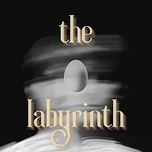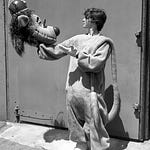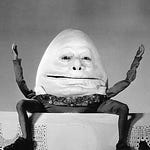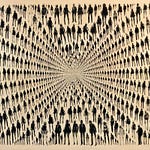In this episode, I dive into the intersection of politics and identity, exploring how the election—and the discourse around it—has morphed into a hyper-stylized spectacle. I felt the need to talk about the election in my way….I’ve got to stay on brand, right!?
Anyway our increasingly online world has transformed political engagement into a product, something we consume for entertainment rather than something that prompts genuine reflection or change. We essentially perform our discontent instead of seeking out a genuine understanding of the origins of said discontent.
Think about it: are we really engaging with the issues, or just performing our political identities for an audience? We seek validation for the identity we formulate online! Both as consumers and creators.
To explore this, I use Jubilee as a backdrop, which has turned political debate into binge-worthy content, casting ideological labels into meme-ready roles in series like Middle Ground (insane ‘vs’ series…. “fit vs fat” is an example of their debates) and Surrounded (1 vs 25 debates).
These "debates" aren’t about meaningful exchange; they’re about creating viral moments, reinforcing stereotypes, and packaging political identity as a consumable commodity. These staged personas reflect the performative nature of modern politics. They’re not there to inform—they’re there to entertain, to affirm, and to let viewers project their own identities onto prefabricated political tropes, symbols, and trends.
But it’s not just Jubilee. Think about figures like Joe Rogan, who recently stirred the pot by endorsing Trump. Platforms and influencers with massive reach have financial incentives to feed us predictable, memeable political “analysis,” and we consume it without digging deeper. Our political discourse has been flattened into a series of catchphrases and predictable debates, designed to feed our sense of self/identity rather than challenge it.
So, what does it mean when our politics is sold back to us as entertainment? This isn’t just disillusioning—it’s profoundly isolating. As we scroll through clips, drawn into ideological caricatures and clickbait conflicts, we sense a disconnect between the theater of politics and the real issues shaping our lives. But instead of prompting action, this disconnect leaves us in a loop of passive consumption, feeding a politics of narcissism and spectacle.
So….our personal distress, our longing for validation, and even our political identities have become the products we buy and sell—leaving us, the “voters,” as spectators in a political drama that may not care whether we truly understand or engage with issues that truly effect us everyday.
The fragmented political arena is a closed loop; a loop with no escape and no imagined future, only a loop of predictable reactions.
Now, dance liberal!
How can we move the spectacle into something more impactful? How can we find a political project that actually has an idea for the future?













Share this post